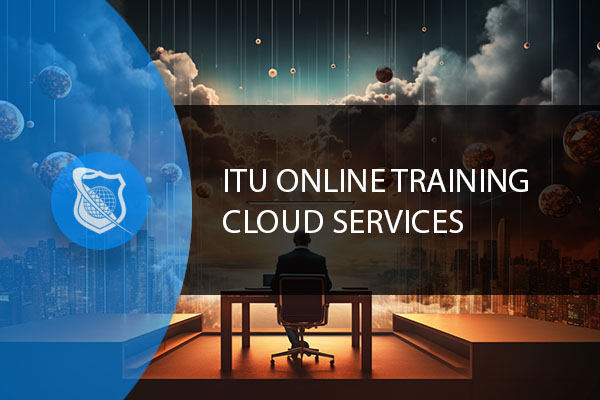Introduction
In today’s fast-paced digital landscape, the question of “How are cloud services delivered on a private cloud?” is more than just a technical query; it’s a business imperative. As organizations across various sectors grapple with the challenges of data management, security, and scalability, the focus has shifted towards finding the most efficient cloud solutions. This article aims to delve deep into the world of private cloud computing, contrasting its features and benefits with those of public cloud services. Whether you’re a CTO contemplating a shift to a private cloud infrastructure or a business leader looking to understand the nuances of private cloud vs. public cloud, this comprehensive guide is designed to help you make an informed decision tailored to your organization’s specific needs.
A Brief History of Cloud Computing
Cloud computing has come a long way since its inception. In the early days, public clouds were the go-to solutions for businesses looking for quick, cost-effective ways to store and manage data. Companies like Amazon and Google led the charge, offering public cloud services that could be easily scaled to meet the growing demands of businesses. However, as organizations started to handle more sensitive information and sought greater control over their data, the limitations of public cloud platforms became apparent.
This led to the rise of private clouds, designed to address the gaps left by their public counterparts. Private clouds offered a new level of security and customization, allowing organizations to build a cloud environment tailored to their specific operational requirements. The advent of private cloud solutions marked a significant turning point in the history of cloud computing, offering a more secure and flexible alternative for data management and storage.

Get Ahead In Cloud Computing
At ITU, we offer an exclusive Cloud Computing training series designed to prepare you for certification and/or to help you gain knowlege of all Cloud based platforms including AWS, Azure and Gooogle Cloud.
Get access to this exclusive Cloud Computing Training today.
What is Cloud Computing?
At its core, cloud computing is the delivery of various computing services—ranging from servers and storage to databases, networking, and software—over the internet. Instead of owning and maintaining physical servers and data centers, businesses can rent computing power and storage from a cloud service provider. This model offers the advantage of scalability, where you can easily adjust your services based on current needs.
There are primarily two types of cloud environments: public and private clouds. Public clouds are owned and operated by third-party cloud service providers and deliver computing resources like servers and storage over the internet. On the other hand, a private cloud is a proprietary network or a data center that supplies hosted services to a limited number of people, offering benefits like improved security and regulatory compliance.
Each of these cloud types comes with its unique architecture and set of advantages. Public clouds are generally easier to set up and are cost-effective, but they may lack the stringent security measures that a business handling sensitive data may require. Private clouds, with their customized architecture, offer a higher level of security and control, making them ideal for businesses with specific compliance requirements or those that handle sensitive data.
In summary, understanding the different types of clouds and how services are delivered on each can help you choose the right cloud computing solution for your organization. Whether it’s a public cloud, a private cloud, or a hybrid model that combines the best of both worlds, the choice ultimately depends on your business needs, the kind of data you handle, and the level of control and security you require.
Understanding Private Cloud: The Basics
In the realm of cloud computing, the term “private cloud” often comes up as a buzzword, but what does it really mean? Understanding the basics of private cloud is crucial for any organization that aims to optimize its IT infrastructure for security, control, and performance. Unlike public clouds, which are accessible to anyone who wants to sign up for an account, a private cloud is a specialized cloud service environment that is exclusively dedicated to the needs and goals of a single organization.
What is a Private Cloud?
A private cloud is essentially a cloud computing platform that is implemented within the corporate firewall, under the control of the IT department. When you opt for a private cloud, you are choosing a cloud solution that offers a distinct and secure cloud-based environment in which only the specified client can operate. This is in contrast to public clouds, which are designed to serve multiple clients and are therefore less secure by nature. The private cloud model offers a higher level of security and privacy through its private cloud architecture, ensuring that your sensitive data is not accessible to the public. This makes it an ideal choice for businesses that have strict data security and compliance requirements.
Private Cloud Architecture
The architecture of a private cloud is one of its most defining features. Unlike a public cloud, which uses generic architecture that is designed to cater to the general needs of multiple clients, a private cloud’s architecture is tailored to meet the specific needs of one organization. This often involves specialized private cloud servers, robust firewalls, and advanced internal hosting solutions. The architecture is designed to offer maximum security and performance, ensuring that the organization’s data is safely stored and easily accessible only to authorized personnel. This level of security is particularly beneficial for organizations that need to comply with regulatory standards, such as GDPR or HIPAA.

Get Ahead In Cloud Computing
At ITU, we offer an exclusive Cloud Computing training series designed to prepare you for certification and/or to help you gain knowlege of all Cloud based platforms including AWS, Azure and Gooogle Cloud.
Get access to this exclusive Cloud Computing Training today.
Private Cloud Solutions and Services
When it comes to the services and solutions that a private cloud can offer, the options are quite diverse. Private cloud solutions can range from Infrastructure as a Service (IaaS), where the cloud provides the basic infrastructure services such as virtual machines, networking, storage, and the user is responsible for managing the operating system, applications, and data. Then there’s Platform as a Service (PaaS), which is a computing platform being delivered as a service. Here, the cloud provides everything from the operating system to the application servers and databases, and the user just puts his or her code in it. Lastly, there’s Software as a Service (SaaS), where the cloud provides the software application, and the data and the user interacts with it through a web browser.
Each of these types of private cloud services offers varying levels of control, flexibility, and management, allowing you to choose the one that best fits your organization’s specific needs. Whether you’re looking to fully manage your own infrastructure or prefer to let a third-party take care of it so you can focus on your core business, there’s a private cloud solution that’s right for you.
By diving deeper into these aspects of private cloud, we aim to offer a comprehensive understanding of its basics, architecture, and the range of solutions and services it can offer. This should help you make a more informed decision when considering private cloud as a part of your organization’s IT strategy.
Public Cloud: An Overview
As the digital transformation wave continues to sweep across industries, public cloud computing has emerged as a key player in this revolution. Unlike private clouds, which are tailored for individual organizations, public clouds are owned and operated by third-party cloud service providers. These providers offer a range of cloud services, from basic storage and computing tasks to more complex machine learning algorithms and data analytics tools. The public cloud model is designed to be a multi-tenant environment, meaning that multiple customers can share the same infrastructure, leading to economies of scale and, consequently, lower costs.
Expanded Subsection on Public Private Cloud Differences
When it comes to choosing between public and private clouds, the decision often boils down to a trade-off between cost and customization. Public clouds are generally more affordable because they distribute the costs of their infrastructure across many clients. This makes them an attractive option for startups and small-to-medium enterprises that may not have the resources for a dedicated private cloud. However, this cost-effectiveness comes at the expense of customization and security. Unlike private clouds, which offer a highly secure and customizable environment tailored to a single organization, public clouds have to cater to multiple clients. This means they often lack the advanced security features and customization options that a private cloud can offer, making them less suitable for organizations with stringent compliance requirements or those that handle sensitive data.
Expanded Subsection on Managed Private Cloud Services
For organizations that want the best of both worlds, managed private cloud services offer a middle ground. These services provide the benefits of a private cloud, such as enhanced security and customization, without the operational complexities that come with managing it. Essentially, a third-party provider takes on the responsibility of setting up, maintaining, and securing the private cloud infrastructure, freeing up your internal IT team to focus on other strategic initiatives. Managed private cloud services are particularly useful for businesses that have specific compliance needs or deal with sensitive data but lack the in-house expertise or resources to manage a private cloud effectively.
By offering a comprehensive look at public clouds, the differences between public and private clouds, and the option of managed private cloud services, this article aims to provide you with the insights you need to make an informed decision about your cloud computing strategy. Whether you’re leaning towards the affordability of a public cloud, the security of a private cloud, or the convenience of a managed private cloud, understanding these key aspects will help you choose the solution that’s right for your organization.
Private Cloud vs. Public Cloud: A Comparative Analysis
In the ever-evolving landscape of cloud computing, the debate between private cloud and public cloud continues to be a focal point for organizations looking to optimize their IT infrastructure. While both have their merits, they also come with distinct advantages and limitations that can significantly impact an organization’s operational efficiency, security, and bottom line. This section aims to provide a comparative analysis of private and public clouds, focusing on key aspects like security and compliance, cost-efficiency, and flexibility and scalability.
Expanded Subsection on Security and Compliance
When it comes to security and compliance, private clouds often have the upper hand. Designed to serve a single organization, a private cloud environment offers enhanced security features such as robust firewalls, intrusion detection systems, and stringent access controls. This makes it an ideal choice for organizations that handle sensitive data or are subject to strict regulatory compliance standards like GDPR [1], HIPAA, or PCI DSS.
On the other hand, public clouds are making strides in improving their security features, including advanced encryption and multi-factor authentication. However, since they are designed to cater to multiple clients, the level of security may not be as comprehensive as in a private cloud. This makes public clouds less suitable for organizations that require a high level of data security and regulatory compliance.
Expanded Subsection on Cost-Efficiency
Cost is often a significant factor when choosing between private and public cloud solutions. Public clouds typically offer a more cost-effective solution, especially for small to medium-sized businesses. The costs are lower because the infrastructure is shared among multiple users, allowing for economies of scale. However, this cost advantage can diminish for larger organizations or those with specific needs that require extensive customization or enhanced security features.
Private clouds, while generally more expensive upfront, can offer better value in the long run. The ability to customize the environment to meet an organization’s specific needs can result in long-term cost savings, particularly when you factor in the reduced risk of security breaches and non-compliance penalties.
Expanded Subsection on Flexibility and Scalability
Both private and public clouds offer a degree of flexibility and scalability that traditional on-premises solutions can’t match. However, the level of customization available in a private cloud is unparalleled. With a private cloud, organizations have the flexibility to configure the environment exactly how they want it, from the operating system to the types of applications that can be run. This allows for a more agile and responsive IT infrastructure that can quickly adapt to changing business needs.
Public clouds also offer scalability and flexibility but within the constraints of a shared environment. While they allow for quick scaling up or down as needs change, they may not offer the same level of customization and control that a private cloud can provide.
By examining these key aspects, this comparative analysis aims to equip you with the knowledge you need to make an informed decision on whether a private cloud, public cloud, or a hybrid of the two is the best fit for your organization’s specific needs and objectives.

Get Ahead In Cloud Computing
At ITU, we offer an exclusive Cloud Computing training series designed to prepare you for certification and/or to help you gain knowlege of all Cloud based platforms including AWS, Azure and Gooogle Cloud.
Get access to this exclusive Cloud Computing Training today.
Real-world Examples and Use-Cases
Understanding the theoretical differences between private and public clouds is essential, but real-world examples can provide a more tangible grasp of their practical applications. These examples serve to illustrate how different types of organizations might choose between private and public cloud services based on their unique needs and objectives.
Expanded Subsection on Example of Private Cloud
Consider a healthcare organization that deals with a large volume of sensitive patient data. In such a scenario, the organization would likely opt for a private cloud solution. A private cloud would allow them to ensure that patient records are securely stored and are accessible only to authorized personnel, such as doctors and nurses. This is crucial for complying with healthcare regulations like HIPAA, which mandates strict controls over patient information. Moreover, the customizable nature of private cloud architecture would enable the healthcare provider to integrate specialized healthcare applications and software, further enhancing the quality of patient care.
Expanded Subsection on Example for Public Cloud
On the flip side, a startup in its early stages might find a public cloud more suitable. Given the initial focus on rapid growth and minimizing operational costs, a public cloud’s pay-as-you-go model would be attractive. The startup could leverage the public cloud’s scalable resources to handle varying workloads without worrying about maintenance or upfront capital expenditure. However, as the startup grows and perhaps starts handling more sensitive data, it might consider transitioning to a private cloud. The move would offer enhanced security features and greater control over the computing environment, aligning with the evolving needs of the expanding business.
Conclusion : How are cloud services delivered on a private cloud
In the final analysis, understanding how cloud services are delivered on a private cloud is not just a technical consideration but a strategic one. It’s an essential part of any modern organization’s data management strategy. Public clouds come with the allure of lower costs and ease of use, making them a go-to choice for smaller businesses or projects with less stringent security requirements. However, as data privacy concerns and customization needs come to the forefront, private clouds are gaining traction.
Private clouds offer enhanced security features and a high level of customization, making them increasingly popular among businesses with specific operational needs or those in regulated industries. Whether it’s the secure and compliant environment offered by a private cloud or the cost-effective, scalable solutions provided by a public cloud, the choice between the two will significantly impact your organization’s data management capabilities and, by extension, its success.
By carefully weighing the pros and cons of private cloud vs. public cloud, and considering real-world examples and use-cases, you can make a more informed decision. This decision should align not just with your current operational needs but also with your long-term business objectives, ensuring that your cloud computing strategy is both effective and sustainable.
Understanding Cloud Services : Private vs. Public Cloud FAQ
What is the difference between private cloud and public cloud services?
Private cloud services are delivered within a secure, dedicated infrastructure exclusively used by a single organization. This setup offers greater control and security, making it ideal for businesses with stringent regulatory compliance needs or those requiring specialized configurations. In contrast, public cloud services are hosted on shared infrastructure managed by cloud service providers, offering scalability and cost-effectiveness for a wide range of computing resources accessible over the internet.
How are cloud services delivered on a private cloud?
Cloud services on a private cloud are delivered through a dedicated network, ensuring exclusive access to computing resources, storage, and networking capabilities tailored to an organization’s specific requirements. This delivery model enables businesses to maintain control over their data and applications, customize their cloud environment, and adhere to strict security and compliance standards.
Can I use both private and public cloud services together?
Yes, many businesses adopt a hybrid cloud approach, which combines the use of both private and public cloud services. This strategy allows organizations to leverage the security and control of a private cloud for sensitive or critical operations, while taking advantage of the scalability and cost-efficiency of public cloud services for less critical applications. Hybrid clouds offer the flexibility to move workloads between cloud solutions as needs and costs fluctuate.
What are the main advantages of using a private cloud over a public cloud?
The main advantages of using a private cloud include enhanced security, as the infrastructure is not shared with other organizations, greater control over the computing environment, and the ability to customize hardware and software to meet specific needs. Private clouds also offer better performance for certain applications due to dedicated resources, and they can meet specific regulatory compliance requirements more easily than public clouds.
How do cost considerations compare between private and public cloud services?
Cost considerations between private and public cloud services vary based on the organization’s specific needs. Public cloud services typically operate on a pay-as-you-go model, offering cost efficiency and scalability without the need for significant upfront investments in infrastructure. Private clouds, while potentially requiring a higher initial investment for dedicated infrastructure, can provide cost savings in the long term for organizations with consistent high demand for computing resources. The choice between private and public cloud should be based on a careful assessment of an organization’s specific requirements, budget, and strategic goals.

Get Ahead In Cloud Computing
At ITU, we offer an exclusive Cloud Computing training series designed to prepare you for certification and/or to help you gain knowlege of all Cloud based platforms including AWS, Azure and Gooogle Cloud.
Get access to this exclusive Cloud Computing Training today.
You may also like:
Cloud Based Solutions : Transforming Today’s Business Landscape
Cloud Services for Business : 10 Reasons Why Your Small Business Needs Cloud Storage
On Premise Computing : Making Sense of On-Prem and Cloud-Based Systems
What Are the Different Cloud Services : Breaking Down Cloud Service Models
























